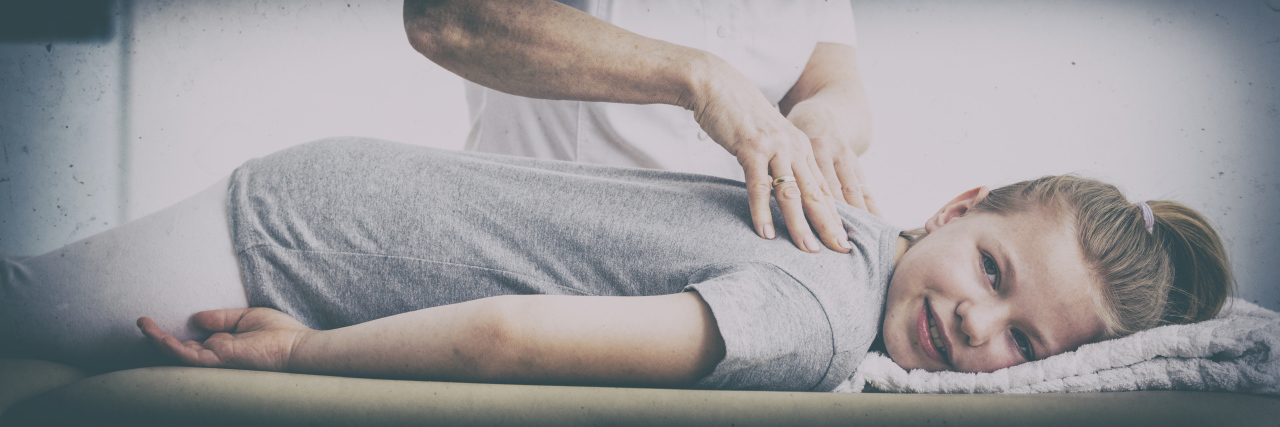I found myself seated in my therapist’s office, talking about my anxiety and depression for the umpteenth week in a row, trying to figure out how to move past it.“I have a proposition, if you’re interested,” she said at the end of a session. “OK?” I replied, confused. “You’ve mentioned having to wear a back brace before and I’m feeling like there’s a lot more there we really need to be exploring. I think this is the avenue we should be taking. It’s completely your choice.”
I sat in stunned silence, my mind a frenzy. I had never talked about this before. I would soon learn that wearing a back brace was so traumatizing for me, the day I stopped wearing it was the day that I locked that part of my past away and never revisited it again. People don’t talk about medical traumas enough. We don’t consider the emotional health of children enough. Just because children are “resilient” doesn’t mean they handle things well.
I was casted for a back brace when I was 12 years old. The doctor who prescribed it was probably the most emotionally negligent doctor I have ever met. He rattled off a speech about scoliosis and bracing with averted eyes, never doing the courtesy of looking me in the eye. Doctors are sworn to follow the Hippocratic oath of “do no harm,” but I realized more than 10 years later that I had to redefine what I had thought to constitute “harm.” I always thought of harm as purely physical. Looking back, I was wrong. He “did harm” when he failed to acknowledge my mental health through all this. He broke his oath when he refused to show me respect by addressing me, not my mom or the floor. He broke it when he lapsed in his responsibility to suggest emotional support. He broke it when I told him the brace was so hot and he just shrugged and said, “Well…” as if I should have known this would happen.
Brace children have to make an important choice: To tell everyone or no one? I chose the latter, but had to pay the steep consequences. I made sure no one knew by staying five feet behind everyone at school, so no one accidentally bumped into me. I tried to deny it to myself until behaviors of avoidance, denial, fear and self consciousness became so ingrained in my psyche that they became personality traits. My parents weren’t even allowed to acknowledge it. Soon I began to live a life of self-induced emotional negligence. A tear fell from my eye as I looked at a double sided piece of paper, on it written dozens of aspects of my daily life that I could attribute to the influence of the back brace. Among them:
- I still suck in my stomach like I did so it wouldn’t feel tight in the brace.
- I breathe shallowly because I always had to.
- I have trouble looking people in the eye, especially in times of honesty (because I was not given this courtesy by my doctor).
- I deal with pain by being by myself.
- I have solidified the “grin and bear it” attitude.
- I equate pain and discomfort with success and progress.
- Because it was “necessary,” I have trouble seeing it as a very real trauma.
- I am still taken aback when doctors are compassionate.
- No one is allowed to acknowledge my vulnerability.
- All I could do after being diagnosed with scoliosis was wait for it to get worse, which imprinted a sense of powerlessness and learned helplessness I still feel today.
In my experience, brace kids want very few things. We are strong enough to know we have to do what we have to do… but it’s hard facing the world. We can control how we handle it, but we can’t control other people. How will our peers react? How will our doctor handle it? We need to know that we can trust others. We need to know we’ll be believed and not pitied or ridiculed. We need to know we’ll be safe — physically and emotionally. We need support. We need to be allowed to be kids.
Getty image by Katarzyna Bialasiewicz.

